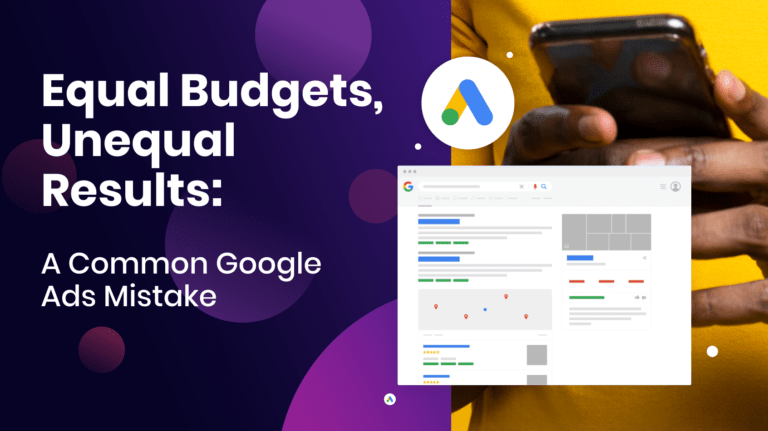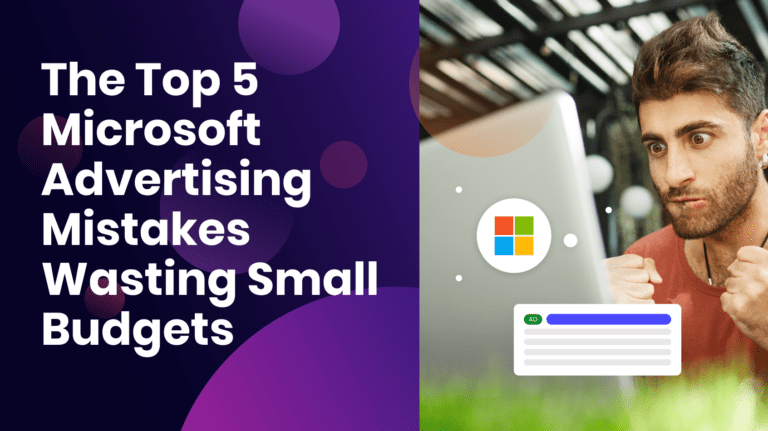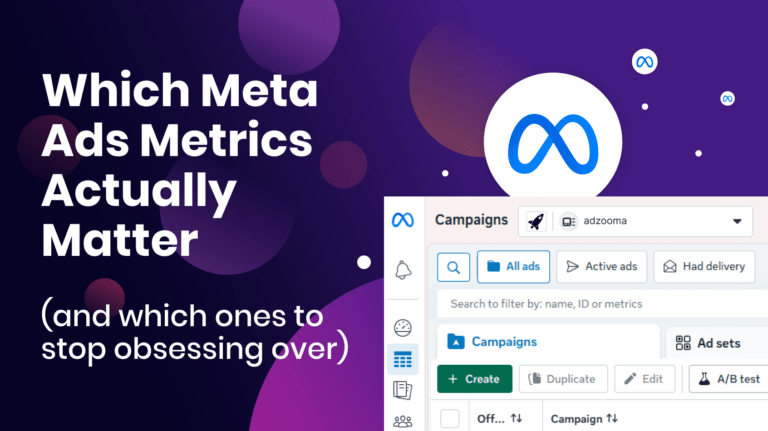No matter what social media platform you’re on, you’re almost guaranteed to come across a social media competition or giveaway.
- “Like for a chance to win!”
- “Share on your story!”
- “Tag 3 friends!”
Social media is flooded with them. They are inescapable, which naturally begs the question: are social media competitions a valuable brand awareness tool for businesses, or have they become so commonplace that they are just annoying?
To find this out, we interviewed a whole host of social media experts, business owners, and competition entrants for their thoughts and experiences.
The benefits of social competitions
“Brands hold giveaways to achieve several goals at once. Giveaways, by their very nature, catch attention, invoke shares and likes, and lead to a buzz.”
Debashri Dutta – Content Marketer at Blog Tyrant
Social media competitions are great ways to build your followers, grow your brand awareness and they create excitement.
After all, you’re hosting a competition or giving something away for free. If the prize is particularly special, that’s extra excitement. Being in for a chance to win gives people immediate value and an incentive to follow you, helping grow your brand and spread the word potentially further than an advertisement could.
The only cost is the prize. When it works, it’s a pretty good bargain.
Arvin Khamseh, founder of Contractor Riches, also commented that the followers you can get from competitions will trust your brand more. This is because of the interaction that they will immediately see from following your brand, enabling them to “learn about what matters” and develop trust.

The social media successes
William Taylor, Career Development Manager at VelvetJobs, told us that running monthly competitions on social media helped boost their following, direct web traffic and lead generation.
Chess Tag founder Motaz Hajaj ran a competition with Mobil 1 to give away a car. To enter, the participants had to take and post a picture of the Mobil 1 logo on the sidelines of a soccer game.
The submissions generated 1.5 million impressions, creating incredible brand awareness for the company.
Cindra McCoy, founder of Guide Dots, says that a competition managed to grow their Instagram following from 175 to 500 in a single day. That’s a 286% growth.
Justin Carpenter of Modern Maids created over 5000 Instagram followers through competitions alone, which is incredible for a local service. The same happened for Jamie Huffman of Charleston Blonde Social Media Agency, who generated over 4k new followers for local businesses by running a joint competition between them.
For some companies, it’s not just about followers. Ben Wilson of The Dice Dungeon saw an increase in interactions and engagement on Instagram after running a competition, helping to create better customer relationships.
The dark side of giveaways
Jeff Moriarty, of Moriarty’s Gem Art, saw a backlash to his company because of this perception. He said:
“One fan complained about the winner cheating, and started writing negative reviews about our company all over our social media pages and messaging other followers. It turned into a big problem and we eventually had to block him from our pages. It wasn’t a good situation for us, or our followers, and since then we haven’t ran any social media competitions. After the problems there, it just wasn’t worth it anymore.”
Social competitions aren’t all fun and rainbows. Like any marketing strategy, there are risks involved. It’s up to you whether or not you take them.

A temporary follower boost to worsen your engagement
“It’s dangerous to rely on the likes and subscriptions that are in most cases only temporary (while the competition is going on) and that are going to disappear once the winner is announced.”
Bryan Stoddard – Homewares Insider
Running a competition to boost your follower count can have a damaging effect on your business if you’re attracting the wrong audience to your profile.
What’s the point of having a high following, if none of them are engaging with your content? Without engagement, your follower number is meaningless. It’s also the reason why you shouldn’t buy social media followers.
“How many of those people stick around after the competition? How many of them care about your products/business and how many of them become potential customers? I would say very few.”
Jessica Hamilton – Event Coverage Specialist at Connection Collective Co.
“While they get growth – does that convert to foot traffic and sales? Or even larger engagement? There are some influencers I’ve seen and track the growth on partnered brands – the engagement rarely changes. They grow upwards of 500 followers minimum but it doesn’t help.”
Gabby Mata – Founder of SA Love List
Alisha Chocha, founder of Your Marketing People, tells us that the followers gained from competitions are fundamentally less engaged in your brand and will eventually drop off – unless you run contests constantly.
Which leads to a dilemma. Would you rather quickly increase your following and constantly run giveaways to keep a half-interested audience engaged or spend longer building a smaller following of people who are more likely to be engaged and interested in your products?
Lowering your value, one giveaway at a time
Another danger of giveaways is that it can devalue your product and your brand.
Hannah Maruyama, author of Before The Blade, gave us an amazing example of this. When she opened up her second scalp micropigmentation and para-medical tattoo studio, she ran a social giveaway for free treatments at her studio.
But instead of raising her social profile, Hannah stated that the giveaways lowered the value of her product. Because they didn’t want to spend anything to pay for it in the first place, getting it for free reinforces perceptions that it’s not worth much.
“My giveaway winners complained, rescheduled multiple times, didn’t listen to my instructions for healing, were late to their appointments (at each appointment), took up hours of time texting and calling me with questions in the middle of the night after I had repeated explained, texted, emailed, and given printed instructions of everything they needed to know.
This taught me that no one values free things. The people who want your product or service for free only do not value what you do.”
Hannah’s advice? Never give something away for free.
By giving something away for free, you “are training your customers and clients to be cheap and undervalue you”. This is a dangerous line to cross.
David Ewart, director of Pavilion Broadway, also echos this advice, stating that:
“[Social giveaways] can be detrimental to brand positioning and appear desperate if customers start to associate your premium brand with weekly giveaways and freebies.”
Building up excitement about your brand and making people interested in your product is a good thing. But, building up an expectation that they should get it for free isn’t.

Fancy your chances? Top tips to win with social media
Social media competitions can be a bit of a gamble for your company. But if you’re going to take the plunge, here are some of our best tips to get the most success from your competitions.
1. Play by the rules
If you’re hosting a social media competition, you need to know the rules that are in place. In fact, Ben Leach, Digital Marketing and PR Executive at HeX Productions, puts it in one of his top pieces of advice:
“I think the potential that can be had from a giveaway or competition is huge – whether it’s a large multi-national firm or a local small business – when done with a robust strategy, the rewards can be great. […]
One of my key pieces of advice would be to make sure you have a good strategy that surrounds your competition; the competition should be a part of your strategy. Also, it’s important to follow the terms and conditions of social networks. If you’re running a competition on a social network like Facebook, Insta or Twitter, make sure you follow their guidelines – otherwise, you could find yourself in a spot of bother!”
Checking guidelines is something we know a lot of businesses don’t do because they’re actively breaking them. For example, Facebook guidelines actually prohibit social competitions from encouraging people to share posts or tag others to enter.
Here’s what Facebook guidelines say:
“Promotions may be administered on Pages, groups, events or within apps on Facebook. Personal timelines and friend connections must not be used to administer promotions (e.g. “share on your timeline to enter” or “share on your friend’s timeline to get additional entries” and “tag your friends in this post to enter” are not permitted).”
Owned by Facebook, Instagram’s guidelines are also similar. But that’s not to say that tagging and sharing social posts doesn’t have its benefits.
But, we can’t actively encourage you to break Facebook guidelines. So we trust you to make your own judgement here.
Twitter’s guidelines, on the other hand, are more concerned with the creation of multiple accounts and duplicate tweets. To make sure you adhere to those guidelines, it’s best if you mention that multiple tweets do not count as multiple entries and try to funnel followers into an email capture form to prevent them creating fake accounts.
Unsure about the rules? Here’s a good guide on how to legally run social media competitions.

2. Don’t make the prize too good to be true
“Is it just me that believes these promos/competitions run on Facebook are all scams?”
Andrew Taylor – Director of Net Lawman
The danger of offering a prize that’s too good is that a lot of customers don’t believe your company is genuine. After all, why would someone give away something that good for free.
SocialPilot’s Marketing and Content Strategist Jagruti Bhargav said “I wouldn’t enter a competition if the prize sounds too good to be true. [It’s] clearly a list building activity that might very well end in spamming my inbox.”
3. Avoid those hunting for wins
There’s a common problem that people hosting giveaways are unable to avoid: attracting ‘competition hunters’.
These are people who actively scout for competitions to enter in the hopes of getting their hands on anything that’s free. It doesn’t matter who’s running it or why – if it’s free, they’ll enter it. Some of them even have burner phones, emails and social media accounts set up just to enter the competitions.
Rhea Freeman comments that:
“If done well, competitions generally are a positive thing, however, I would say that there’s also a growing trend in everyone doing a competition for, well, anything, and people are getting fatigued. I feel like smaller competitions are having less and less of an impact too. You also do have to be aware that when you run competitions, if the criteria is that the person follows your page, you will likely see a % drop off after the closing date because those people were only following you for a chance to win the competition.”
John Frigo hits the nail on the head with this issue, by telling us that these ‘hunters’ are “never going to turn into customers” and if they win, they’ll be throwing a product away on someone that won’t use it – or do anything to further promote the brand.
That’s a valid point.
Your brand can get a lot of engagement and new followers while the competition is running. But you should think about what happens afterwards as well.
The best-case scenario: your product or prize goes to your ideal customer. They love it. They then make a post to thank you and tell their family and friends about it as well. That’s extra word of mouth and brand exposure for you.
Ryan Gonzales, Director of Design at Shine Bathroom, tells us that they further their impact by offering everyone who didn’t win a discount on the product. This is a great way to further your impact and increase your sales. If someone has entered a competition, they’re already interested in your product. This is a great retargeting list that you should be taking advantage of.
4. Pick the right prize by knowing your audience
“[The] most important element of a giveaway is the prize. If the prize is not exciting or doesn’t cater to the crowd you’re marketing to, the virality doesn’t work.”
Alan Kong – Founder of Fire Roots
There’s not a perfect prize to give away on social media. Picking your prize depends entirely on the audience that you’re marketing to.
It needs to be something that they’re excited about and interested in, but not too big that they aren’t suspicious. It also needs to appeal to your audience, without attracting those who just want anything that’s free.
This is something that Judith Accilion of Events So Judith found during her competition. Although she had seen success building an email list, her last giveaway attracted people who weren’t getting married or interested in weddings. Even though her prize of a planner was good for her company, it wasn’t specific enough to just attract her audience.
It might be a nice idea to go with the big and broad prizes, but you should really aim for attracting your customers and your customers alone.
“If you’re giving away something that is very targeted to a specific audience, you can generate a lot of targeted leads for the cost of one product. Giveaways done right can explode your business. Giveaways done wrong can cost a lot of money and really be more trouble than they’re worth.”
Dom Bavaro – Founder of The Dadapreneur Blog
“We’ve worked on hundreds of competitions with brands and offered lots of prizes – whatever you offer, make sure it’s something your target audience would actually love to have. No one will enter if it’s not a prize they’re enamoured with.”
Corrie Jones – CEO & Founder of Untapped Digital
Louisa Warwick, who regularly hosts celebrity giveaways on Instagram, gave a great case study of how knowing her followers created better results.
By noticing that 90% of people entering the giveaways are female, she ensures that all celebrities she works with have a minimum of 60% female followers in order to be successful.
Not sure what prize your audience would be interested in? Frank Spear, content marketer at MonsterInsights, poses a very simple solution: ask.
“Post a poll and tell consumers you want to have a giveaway, but want to know what kind of prize they would like the chance to win. I’ve found that this technique allows us to customize our giveaways and use CTAs that grow our business while giving our subscribers a prize they actually want.”
5. Easy entry does it
“The key [to success] was to make the parameters simple, it just required following my account and tagging someone in order to win. This gave me and the boutique greater exposure at a minimal cost”.
Fatima Mukhtar – Modestly Speaking
Freemen says “in order to get maximum entries, you need to make the competition as easy as possible to enter”.
Think of it like converting customers. With competitions, you’re still trying to get them to take a core action: enter.
The more steps you put in place, the less likely people are to get to the finish line. So, don’t make your followers have to do 5 different actions to enter. Think about what you’re trying to get (building your email list, getting new followers, building your brand awareness, etc) and pick a simple entry requirement based on that.
If you ask too much, people will think your prize is not worth it.
“I’ll only enter giveaways that are easy to enter, so as a business I like to use online giveaway software that makes it really easy for contestants to enter. Usually, I just ask them to provide their email address, and then give them numerous ways to enter. Contestants can get bonus points for following us on Facebook or Pinterest, as well as for sharing our contest with friends, extending our reach even further!”
Meg Marrs – Founder of K9 of Mine
6. To tag or not to tag?
Tagging is a common entry requirement that a lot of brands are using.
So, in order to enter, a user has to tag a friend into the post. Sometimes, all those that have been tagged also have to follow the brand as well. That’s a lot of hassle, which can put people off the competition.
In principle, tagging is a great system because you’re physically getting your customers to recommend your brand to a friend.
If they’re interested in your products, they’ll naturally follow. That’s more engagement for you.
But the problem comes from a negative perception of tagging. Some people will not want to do it because they feel like they’re forced to share a product that only they are interested in, with someone that might not care for it.
It’s annoying. It’s irritating. And it’s something that people will feel strongly about. If you want people to tag others, make sure you have a valid reason.
“Encouraging the tagging of friends [is] not considered best practice and can quickly be perceived as spammy”
Nicole Rohde, PR Manager at Maxwell-Scott
“I will never join a contest that will require you to like, tag, share, or follow. Those things are for something I feel strongly about. I would never compromise my feelings for any prize.”
Jeremy Harrison – Founder of Hustle Life
7. Sharing isn’t caring
Similar to tagging, sharing posts is viewed as an annoying practice for social media competitions, but on a wider scale.
If you tag one person in a post, you’re only exposing one person to the brand. If you’re sharing the post, you’re sharing that brand to your entire friend list and following. That’s a big commitment – particularly for people that do not feel that strongly about your product.
“I don’t feel comfortable posting an offer on my own account. I am fine with tagging close friends, but because of my personal brand, I don’t like sharing those kinds of offers unless previously discussed.”
Shaan Patel – CEO of Prep Expert
Polly Kay, Senior Marketing Manager at English Blinds, commented that sharing a post is something that “most prospects are unwilling to do”.
Expanding on this statement, Kay says that:
“The reluctance from prospects to like and share to enter comes from a combination of not wanting to promote (by means of the “share”) a brand that they would not organically have been a positive spokesperson for; suspicion as to the availability of a genuine prize, the selection process, and being entered; not wishing to reduce their own chances of winning by encouraging more entrants; and annoyance when their feeds are clogged up with such posts from others.”
Therefore, the competitions that rely on shares will rarely pay off for the company.

8. How people should enter your competitions
“Names, emails, and phone numbers are the price for entry to a social media giveaway”.
Jonathan Rizzo – American Photo Video
To pick the best way for people to enter, you need to think about your goal.
What is it you want to achieve?
- More followers
- Greater brand awareness
- Email subscribers
- More sales
What your goals are will influence the entry requirements that you choose. It’s not just short term goals either. Think long term.
Andrew George, of APG Personalised, says that you shouldn’t just think about getting followers into your brand. It’s what you do with them afterwards that counts.
“[Ensure] new subscribers are taken care of when they join, by having an effective welcome sequence ending in a discount can make them interested in your products, build up the know-like-trust factor with your business and give them the push they need to make a purchase which is the ultimate goal of holding giveaways.”
Even though social giveaways are online, you don’t have to limit yourself to online goals. Justin A. Hill of Hill Law Firm completed their social giveaways offline:
“Our law firm recently hosted a giveaway to launch our new office location. The goal was to increase visibility through social media and drive foot traffic through a free giveaway. As we are a law firm, we were giving away free pocket constitutions. Many people came by to get a copy. When they were here, we took photos to post on our social media. It was a great success with a very low cost.”
This is a great example of knowing exactly what your goal and customers are. They wanted to raise awareness of their new location and increase foot traffic. They give away something that their specific audience would be interested in, with enough for everyone who physically came to the offices.
Taking pictures also generated extra buzz for them afterwards on social – and is great for making the customers who came feel appreciated, further strengthening their loyalty to the brand.
9. Prove there was a winner
Paul Strobel recommends ‘proving’ that your competition is real once it’s over:
“For businesses, I’d make an equally large effort to getting a potential giveaway winner to vouch for you, providing a “thank you” picture or video for the brand to post as I would to promote it. Wrapping up the giveaway in a proper way, showing your audience that the giveaway was indeed real is a crucial part of the campaign’s success”
Sara McCord, Founder and CEO of Sara McCord Communications, stresses the importance of revealing the winner:
“To keep your credibility, it’s vital to post who the winner is when the giveaway is complete. There is one brand I’m thinking of that shared giveaway posts on their feed for weeks on end and never shared winners. That makes people feel used and lessens brand loyalty.”
David Stankunas, owner of Zoo Snoods, takes this a step further.
The company hosts regular giveaways to “frequently interact with our customers and followers, create excitement around our products, and generate overall goodwill in our online community”.
The giveaways involve people taking photos of their pet wearing a Zoo Snood product. Then, they let their followers vote for their favourite photo. The one with the most votes wins and is proudly displayed on their website afterwards.

This approach is great for a number of reasons.
First, it’s targeting only their customers. If you have to take a picture in a Zoo Snood product, then only customers can enter. It’s a great way to stop gaining followers from competition hunters and keep everything on-brand.
Second, it’s amazing at building trust and engagement from the customers. There’s no doubt that someone doesn’t win for them, because they are taking an active part in selecting the winner. They go from a passive watcher to an active participant.
Finally, featuring the winners on the website creates a real sense of community and also acts as more testimonials for the brand. Excellent.
Make your brand the real winner
Social media competitions are a great tool for brand awareness if you do them right. But, done poorly, they can damage your reputation, devalue your products and just annoy the followers that you’ve already earnt.
In some cases, the success that you can earn from social media competitions is a short-lived follower boost. But as these people aren’t the audience that you wanted to attract and aren’t going to engage with your brand, it’s an empty victory.
To make sure that your brand is the only winner, you need to plan competitions to achieve a specific goal. Strategise exactly what you want to achieve and how to target your customers. Don’t try and give away something that everyone is interested in. Think about your customers, what they want and the best way for them to enter.
Follow this advice and your company will be the real winner.




